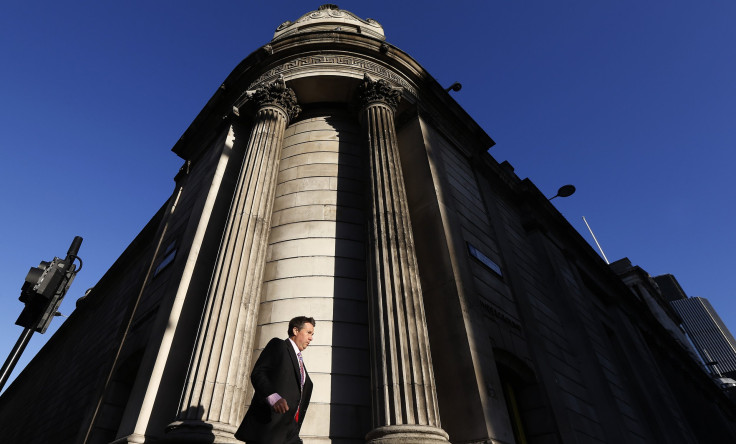Bank Of England Leaves Benchmark Interest Rate, Asset Purchase Program Unchanged; Maintains Forward Guidance

The Bank of England maintained its benchmark Bank Rate at a record low of 0.5 percent and left its asset-purchase program unchanged at 375 billion pounds ($614 billion) as expected, at a time when the nation continues to outperform all of its major European peers. But, contrary to predictions, the bank chose not to alter its thresholds for considering a change in interest rates yet.
“A recovery appears to be taking hold. But the legacy of adjustment and repair left by the financial crisis means that the recovery is likely to remain weak by historical standards. And inflation remains above target,” the BoE said, in a statement on Thursday. The BoE's monetary policy committee, or MPC “intends not to raise Bank Rate from its current level of 0.5 percent at least until the Labor Force Survey headline measure of the unemployment rate has fallen to a threshold of 7 percent.”
The MPC had said in August that it would not raise interest rates until unemployment, which is currently at 7.4 percent, fell to 7 percent and consumer price index reached 2 percent. At the time, it had expected the unemployment rate to remain higher than 7 percent at least until 2016.
Inflation fell to 2.1 percent, a four-year-low, in November from 2.2 percent in the preceding month, signaling that it could fall below the 2 percent target sooner than previously estimated, amid accelerating economic growth. And the country’s trade deficit in November narrowed to 3.2 billion pounds, compared to 3.5 billion pounds recorded in October.
The MPC “reached its decisions in the context of the monetary policy guidance announced alongside the publication of the August 2013 Inflation Report,” the BoE said. The bank’s decision was widely anticipated.
“The ongoing combination of weak economic growth, a damagingly strong currency and poor liquidity conditions will maintain the pressure on the central bank to take further action to support the region’s fragile economic recovery in 2014,” Jonathan Loynes, chief European economist at Capital Economics, said, ahead of the interest rate decision.
However, with the nation's unemployment rate close to 7 percent and inflation just above the central bank’s 2 percent target, which together underline a strong economic recovery, there were fears of an impending hike in borrowing rates. According to Loynes, the bank would instead prefer to reduce the unemployment threshold to 6.5 percent.
The BoE made it clear that, even if the thresholds set by the bank are breached, a further increase in the interest rate would occur only if the economic situation warranted such a move. The BoE cut its Bank Rate by 0.5 percentage points to 0.5 percent in March 2009.
A hike in “interest rates would depend on its assessment at that time of the appropriate setting of monetary policy required to fulfill its remit to deliver price stability. There is, therefore, no presumption that there would definitely be an immediate increase in Bank Rate or sale of assets,” the bank said.
© Copyright IBTimes 2024. All rights reserved.





















